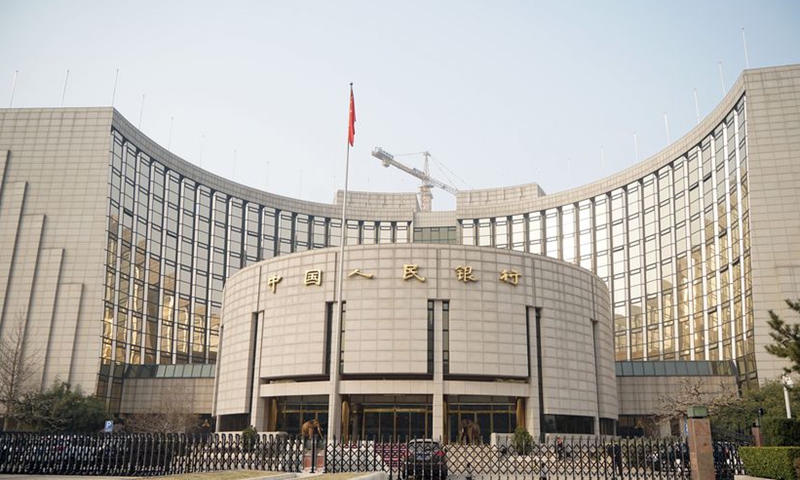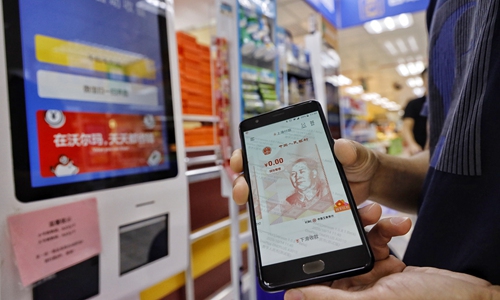PBC joins multilateral project, promotes digital currency in cross-border payments

PBC Photo:Xinhua
The People's Bank of China (PBC), the country's central bank, announced on Wednesday that its digital currency institute has jointly launched a multilateral central bank digital currency (CBDC) "bridge" research project with other central banks and monetary authorities to promote the digital currency's application in cross-border payments.
The move indicated that the PBC has shifted some emphasis away from domestic trials in the retail sector onto cross-border payments to accelerate the pace of yuan internationalization, although the trials in China will be the mainstay in the next two or three years, industry analysts said.
Named m-CBDC Bridge, the project was jointly rolled out by the Hong Kong Monetary Authority, the Central Bank of Thailand, the Central Bank of the United Arab Emirates and the digital currency institute of PBC, according to the PBC's website.
The project will further study distributed ledger technology through the development of experimental prototypes to realize payment-versus-payment settlement of cross-border transactions of the CBDC, and facilitate domestic and foreign currency exchanges in cross-border trade scenarios.
"It will further build a favorable environment for more central banks in Asia and other regions to jointly study and improve the cross-border payment capabilities of the financial infrastructure to solve the problems of low efficiency, high costs and low transparency in cross-border payments," the PBC said.
It's inevitable that more central banks or monetary authorities will race to roll out digital currencies, and China, which began research of its Digital Currency/Electronic Payment (DC/EP) six or seven years ago, has taken a lead in that way, Chen Bo, director of the Digital Finance Research Center at the Central University of Finance and Economics, told the Global Times on Wednesday.
According to the Bank for International Settlements, among the respondents to its questionnaire sent to 65 central banks around the world in the fourth quarter of 2020, 86 percent said they are conducting research or experiments on the CBDC.
"The project announced today was mainly focused on Asia as China speeds up its construction of a 'friends' circle' in this regard. A number of G7 authorities are also exploring the opportunities and risks associated with the CBDC," said Chen.
Unlike the importance attached to cross-border payments and their role in addressing the Facebook-led digital currency Libra, as seen among G7 members, China's DC/EP focuses more on improving the domestic retail payment system, Zhou Xiaochuan, former governor of the PBC, said in a forum last October.
"Expanding cooperation by joining more 'friend circles' lays the foundation for the yuan's internationalization, which is undoubted," said Chen.
SWIFT, the global system for financial messaging and cross-border payments, on January 16 set up a joint venture with the PBC's digital currency research institute and clearing center. After officially establishing a wholly owned entity in Beijing in June 2019, the new strategic move by SWIFT marks its deepening cooperation with China.
However, the current phase of DC/EP is focused on stimulating the real economy to boost consumption, and the PBC will expand its trial sites this year. "It is estimated to take two to three years until it can grow independently from local governments' financial support," Chen noted.
Shares of digital currency concept stocks gained 2.25 percent in China's A-share market on Wednesday.


